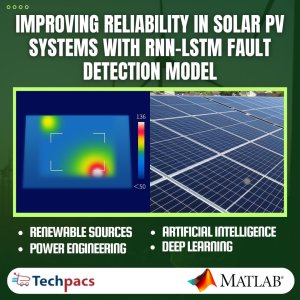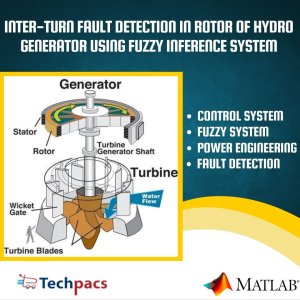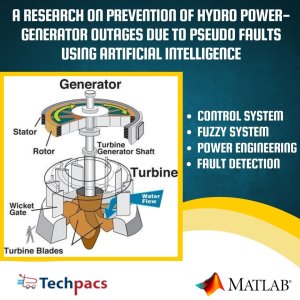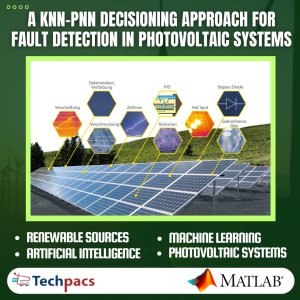Optimizing Renewable Energy Integration: ANFIS-based MPPT for Photovoltaics and Fuel Cell Integration.
Problem Definition
The authors' study on a Perturb & Observe MPPT technique-based PV array for charging batteries using solar energy has uncovered several limitations that need to be addressed. One major drawback is the decreased effectiveness of the MPPT as decisions are made more quickly with an increased step size of error. This can result in inefficient energy conversion and decreased performance of the system. Additionally, the P&O method is unable to accurately identify the precise position of the Maximum Power Point (MPP), leading to potential energy loss.
Another critical issue highlighted in the analysis is the vulnerability of the system to quickly changing environmental conditions, which can result in directional errors.
Furthermore, the existing design may not be able to charge the batteries if the PV arrays are unable to capture solar energy. This limitation could severely impact the overall performance of the system, emphasizing the necessity for updates and improvements in the technology used. Taking these drawbacks into consideration, it becomes evident that there is a pressing need to enhance the PV array system for more efficient solar-powered battery charging.
Objective
The objective of this study is to enhance the performance of a Perturb & Observe MPPT technique-based PV array system for charging batteries using solar energy. This will be achieved by designing a new MPPT algorithm using ANFIS to improve decision-making efficiency, minimize directional errors, and accurately identify the Maximum Power Point. Additionally, the integration of a Fuel cell energy source with the photovoltaic system will ensure continuous power generation. The proposed approach aims to optimize charging efficiency and effectiveness models, ultimately improving the overall performance of solar-powered battery charging systems.
Proposed Work
To address the limitations identified in the Problem Definition of the existing Perturb & Observe MPPT technique-based PV array for charging batteries, the Proposed Work focuses on designing a new MPPT algorithm using ANFIS for photovoltaic systems. This approach aims to improve decision-making efficiency, minimize directional errors under changing environmental conditions, and precisely pinpoint the position of MPP. Additionally, the Proposed Work includes the combination of a Fuel cell energy source with the photovoltaic system to ensure continuous power generation. By utilizing ANFIS for MPPT and integrating a switching module, the Proposed Work seeks to enhance charging efficiency and effectiveness models, ultimately improving the overall performance of the solar-powered battery charging system.
The rationale behind choosing ANFIS for the MPPT algorithm lies in its adaptive and self-learning capabilities, which enable it to efficiently track and adjust to changes in the solar power output.
By setting a reference current limit and maximum charging current, the proposed approach ensures that the battery remains protected from damage while optimizing the charging process. The integration of a switching module further enhances the system's flexibility and reliability, allowing for seamless transitions between different energy sources. Overall, the Proposed Work's innovative combination of ANFIS-based MPPT and Fuel cell integration addresses the research gap identified in the Problem Definition and offers a comprehensive solution for improving solar-powered battery charging systems.
Application Area for Industry
This project can be applied in various industrial sectors such as renewable energy, power electronics, and smart grid systems. One specific challenge that industries in these sectors face is the inefficiency of traditional Perturb & Observe (P&O) MPPT techniques when it comes to solar-powered battery charging. The proposed solutions in this project, particularly the use of an Adaptive Neuro Fuzzy Inference System (ANFIS), address these challenges by improving the accuracy and effectiveness of the MPPT technique. By setting a reference current limit and incorporating a switching module, the project aims to enhance the overall charging efficiency and effectiveness models. Implementing these solutions can lead to better battery performance, improved utilization of solar energy, and ultimately, increased sustainability in various industrial applications.
Application Area for Academics
The proposed project can significantly enrich academic research, education, and training in the field of renewable energy and battery charging systems. By introducing a new current controlled method based on Adaptive Neuro Fuzzy Inference System (ANFIS), researchers, MTech students, and PHD scholars can explore innovative research methods and simulations that improve the efficiency and effectiveness of solar-powered battery charging systems.
The relevance of this project lies in its potential to address the drawbacks of traditional MPPT techniques for solar-powered battery charging. The ANFIS-based approach offers a more accurate and efficient method for tracking the maximum power from solar panels, thereby enhancing charging efficiency and effectiveness. By incorporating a switching module into the proposed work, the project aims to improve battery charging performance even under challenging environmental conditions.
Researchers and students in the field of renewable energy and electrical engineering can leverage the code and literature of this project to develop advanced research methods and data analysis techniques within educational settings. By exploring the application of ANFIS algorithms in MPPT techniques, scholars can enhance their understanding of adaptive control systems and machine learning algorithms in the context of renewable energy systems.
Moving forward, the project offers a reference for future research in the development of intelligent battery charging systems using ANFIS algorithms. The integration of ANFIS-based MPPT techniques into solar-powered battery charging systems can pave the way for further innovation and advancements in the field of renewable energy technology. As such, the project opens up new avenues for exploring the potential applications of machine learning algorithms in improving the performance and efficiency of solar energy systems.
Algorithms Used
In order to overcome the limitations of the traditional current controlled methods, a new and improved current controlled method is proposed in this thesis that is based on Adaptive Neuro Fuzzy Inference System (ANFIS). In the proposed work we have employed a reference current of 14A as limit current, therefore any value of current below or above 14A needs attention. The maximum charging current is set at this level to prevent battery damage. The main objective of the proposed work is to enhance the charging efficiency and effectiveness models. To accomplish this task, we have firstly improved the MPPT technique and secondly switching module is introduced in the proposed work.
The first objective is accomplished by using an ANFIS based MPPT technique for tracking the maximum power from solar panels.
Keywords
SEO-optimized keywords: Perturb & Observe MPPT, PV array, solar energy, MPPT technique, battery charging, P&O approach, drawbacks of P&O method, current controlled methods, Adaptive Neuro Fuzzy Inference System, ANFIS, reference current, charging efficiency, switching module, ANFIS based MPPT technique, Maximum Power Point Tracking, Hybrid Solar Photovoltaic/Fuel Cell Energy system, Fuzzy Logic, Renewable energy, Energy management, Energy conversion, Energy efficiency, Photovoltaic systems, Fuel cells, Power electronics, Hybrid power systems, Renewable energy integration, Control system, Artificial intelligence.
SEO Tags
PV array, Perturb & Observe, MPPT technique, solar energy, battery charging, P&O approach, drawbacks, directional errors, MPP, current controlled method, Adaptive Neuro Fuzzy Inference System, ANFIS, reference current, charging efficiency, MPPT technique improvement, switching module, solar panels, Maximum Power Point Tracking, Hybrid Solar Photovoltaic/Fuel Cell Energy system, Fuzzy Logic, Energy management, Renewable energy integration, Power electronics, Artificial intelligence.
| Shipping Cost |
|
No reviews found!

















































No comments found for this product. Be the first to comment!